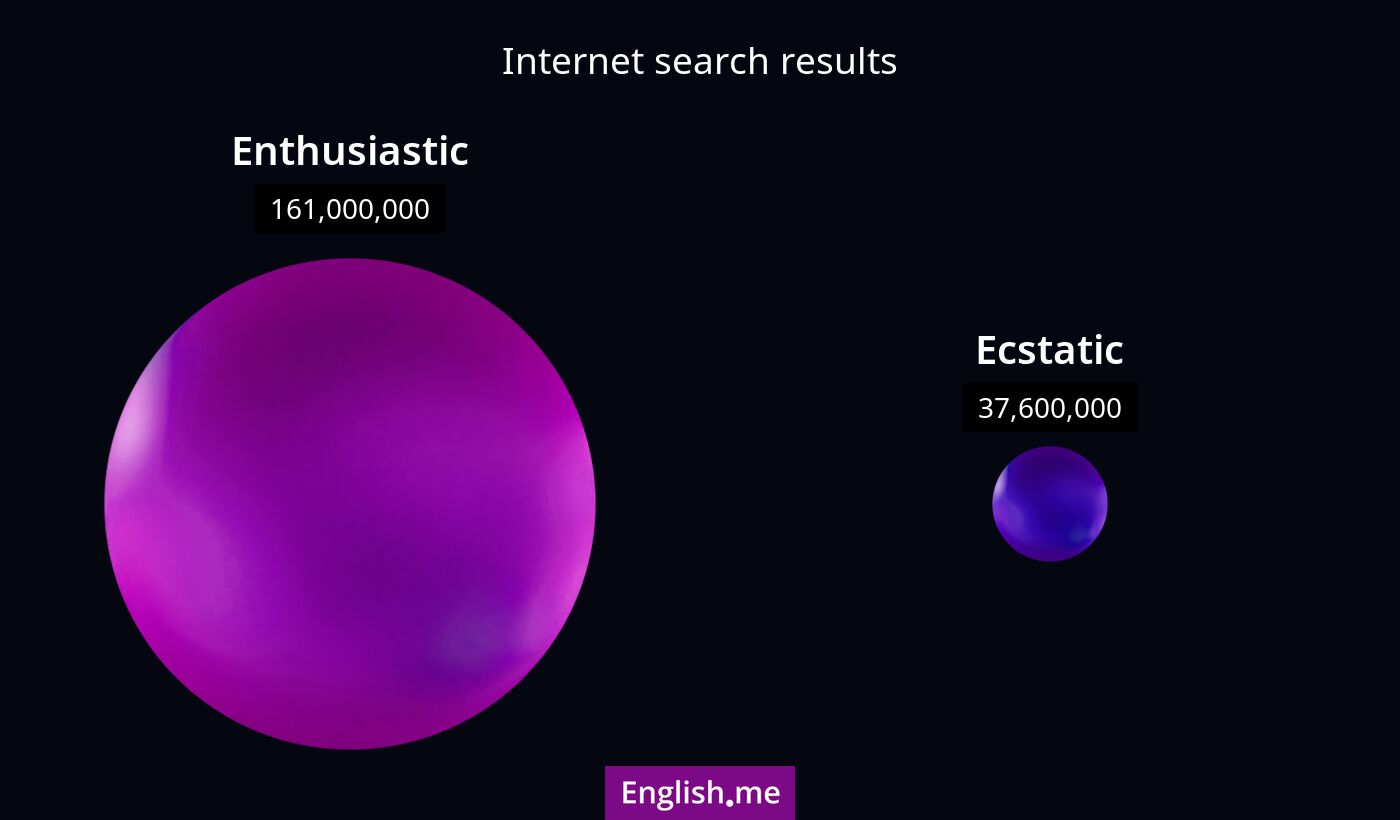"Enthusiastic" vs. "ecstatic": a closer look at their energy levels
Reviewed and edited by  Lloyd Cooper 05/02/2025, 03:45
Lloyd Cooper 05/02/2025, 03:45
English.me team member

 What is similar?
What is similar?
Both "enthusiastic" and "ecstatic" are adjectives that describe positive emotional states involving excitement or joy.
 What is different?
What is different?
"Enthusiastic" refers to showing intense interest, eagerness, or approval toward something, often in an active or sustained way. "Ecstatic" describes a state of overwhelming happiness or joyful excitement, often to the point of being unable to contain one's feelings.
 Which one is more common?
Which one is more common?

 Examples of usage
Examples of usage
Enthusiastic- She was enthusiastic about joining the new project team.
- The crowd gave an enthusiastic cheer when the band took the stage.
- He is always enthusiastic when it comes to learning new languages.
- They were ecstatic upon hearing they had won the grand prize.
- She was ecstatic when she received the acceptance letter from her dream university.
- He was ecstatic about the birth of his first child.

 English
English español
español française
française italiano
italiano deutsche
deutsche 日本語
日本語 polski
polski česky
česky svenska
svenska Türkçe
Türkçe Nederlands
Nederlands